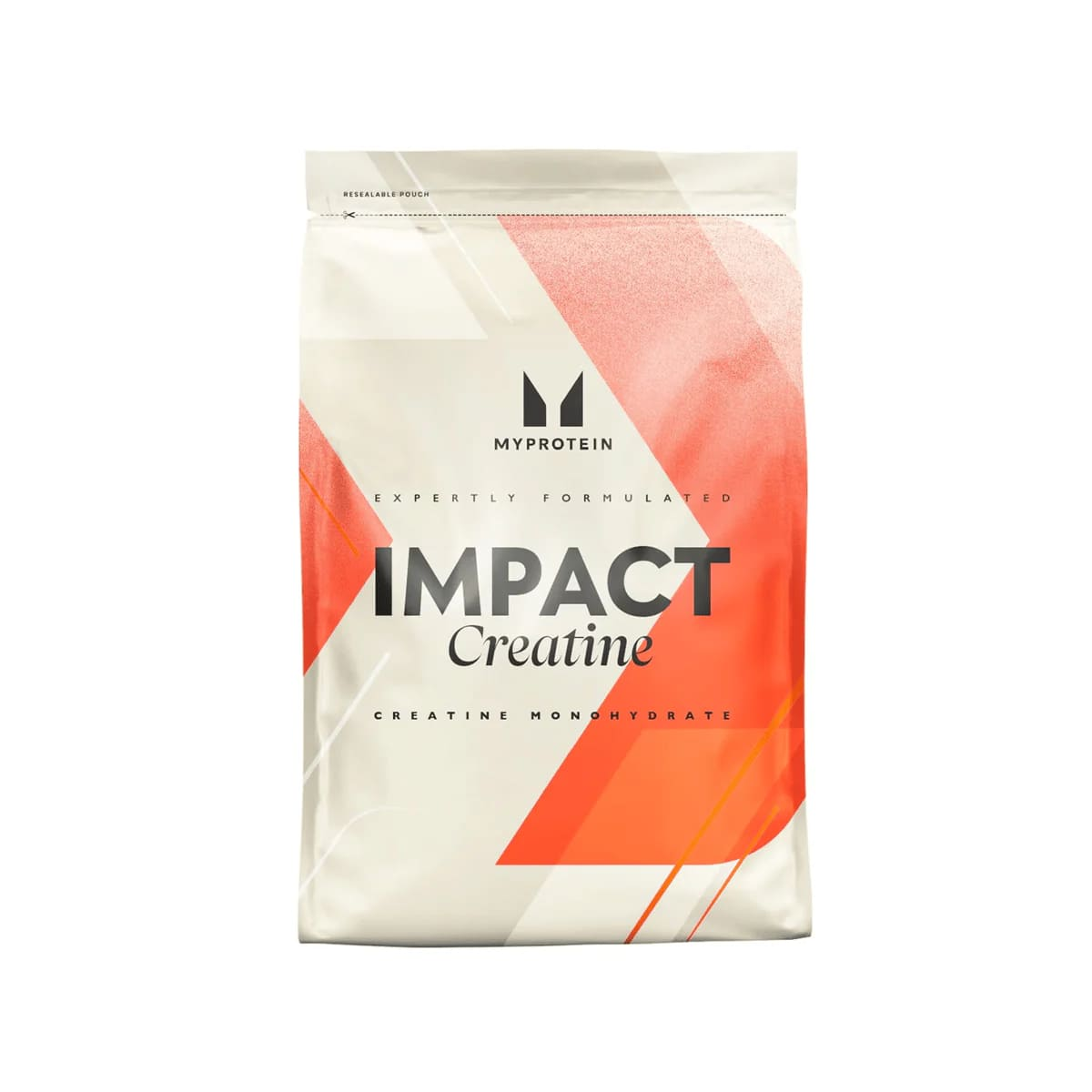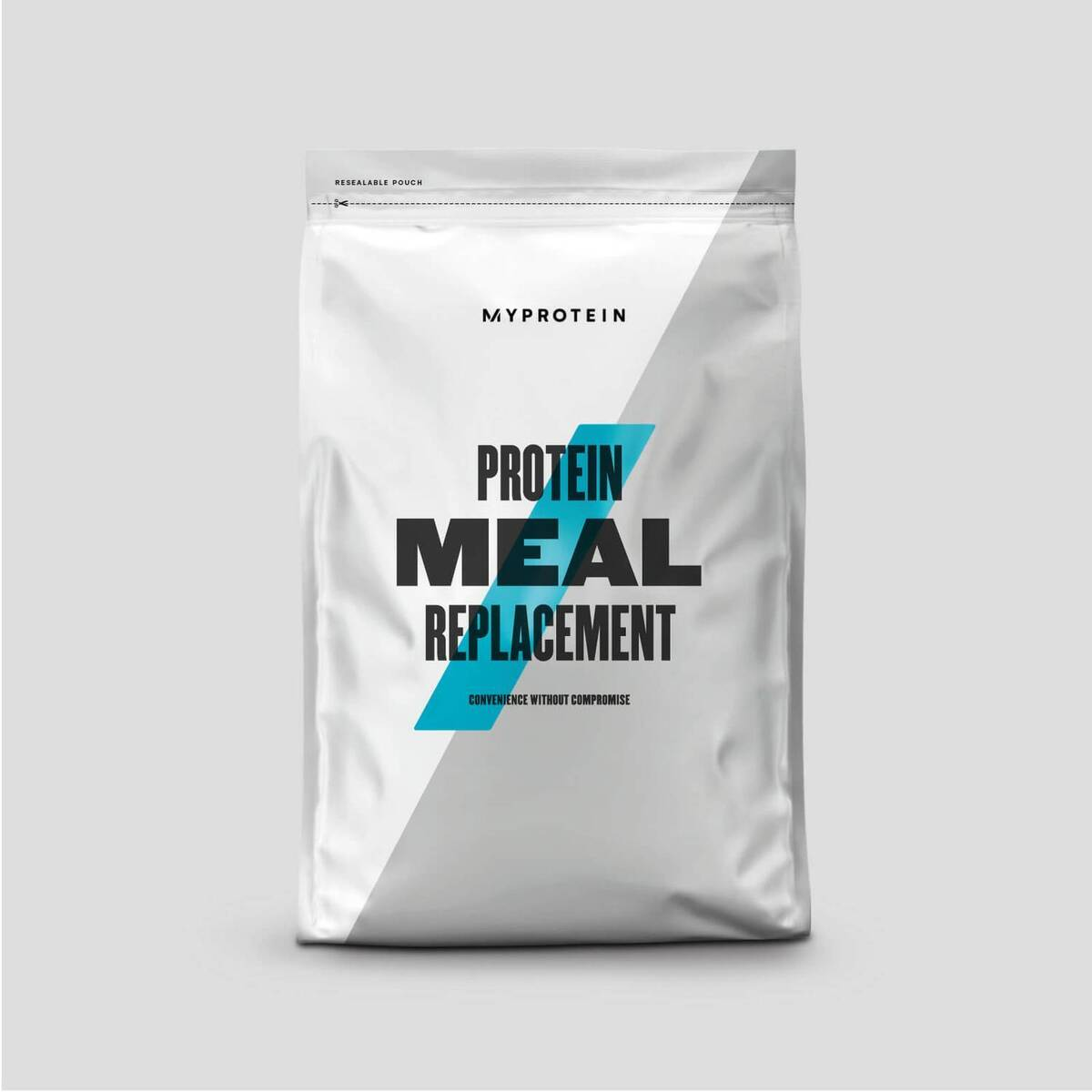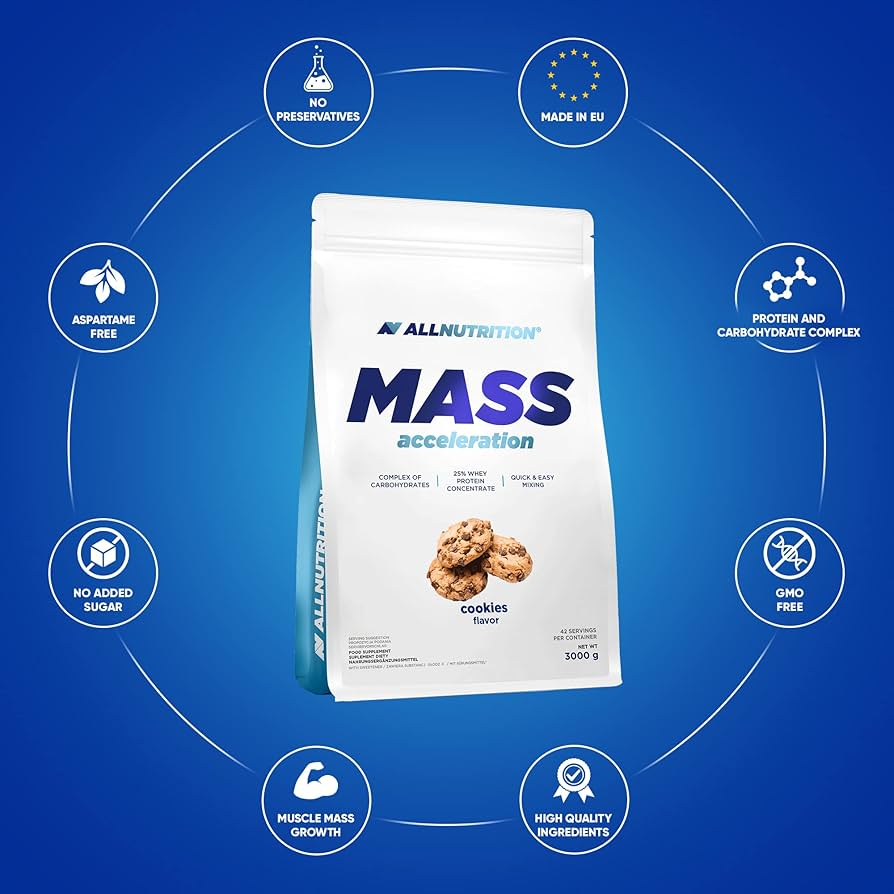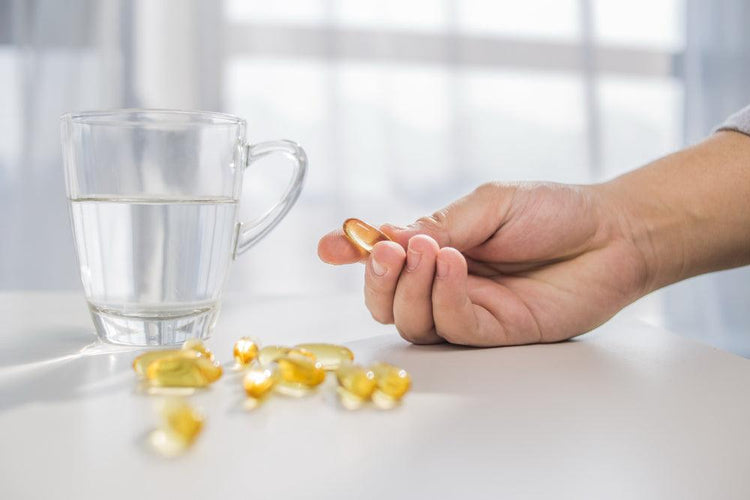How much Water should I drink with Creatine?


Related products
If you're supplementing with creatine, you've likely heard that staying hydrated is essential—but how much water should you actually drink? While creatine helps increase water content within your muscle cells, failing to drink enough fluids can limit its effectiveness and may lead to cramping or discomfort in some individuals.
In this guide, we’ll explore how hydration impacts creatine absorption, how much water you really need per dose, and whether drinking more water improves your results. Whether you're new to creatine or fine-tuning your supplementation routine, getting the water balance right is key to unlocking its full benefits.
The Role of Water
Water plays a crucial role in the efficacy and safety of creatine supplementation. Understanding this relationship is vital for anyone using creatine, whether for athletic performance, muscle building, or health reasons. This section explores the intricate link between water and creatine, emphasizing the importance of hydration for overall muscle and kidney health, and how dehydration can impact the effectiveness of creatine. So you may be wondering ''how much water should I drink with creatine.''
Relationship
The interplay between water and creatine begins at the cellular level. Creatine's ability to enhance muscle growth and performance is partly due to its osmotic properties, which draw water into muscle cells. Dr. Emily Clark, a sports nutrition expert, elaborates, "When creatine enters muscle cells, it brings water with it. This increased cellular hydration is crucial for muscle growth and optimal functioning." This process, known as cell volumization, is fundamental to the anabolic effects of creatine.
However, this also means that adequate hydration is essential for efficient creatine uptake. If the body is dehydrated, creatine's ability to enter muscle cells and exert its effects may be compromised. Consequently, individuals using creatine need to ensure they are consuming sufficient water to facilitate its absorption and function.
The Importance
Hydration is a cornerstone of muscle health, and this is particularly true when supplementing with creatine. Muscles are composed of over 70% water, and any imbalance in hydration can significantly affect muscle function and health. Dr. John Roberts, a renowned physiologist, points out, "Proper hydration is essential for muscle protein synthesis, energy production, and overall muscle recovery. This is even more critical when using supplements like creatine."
Moreover, hydration plays a pivotal role in kidney health, an aspect of utmost importance for creatine users. The kidneys are instrumental in filtering waste products, including those produced from creatine metabolism. "Sufficient water intake is vital to support the kidneys in processing and excreting creatine breakdown products. Inadequate hydration may strain the kidneys and potentially lead to health issues," warns Dr. Lisa Hamilton, a nephrologist.
How Dehydration Affects Creatine Efficacy

Dehydration can profoundly impact the effectiveness of creatine supplementation. When the body is deprived of adequate water, the benefits of creatine, such as increased strength, muscle mass, and endurance, may be diminished. This is partly due to the reduced ability of dehydrated muscle cells to absorb and utilize creatine effectively.
Furthermore, dehydration can exacerbate potential side effects associated with creatine use, such as cramping and gastrointestinal discomfort. Dr. Clark advises, "To maximize the benefits of creatine and minimize potential side effects, maintaining optimal hydration levels is imperative. This means not only drinking enough water but also being mindful of factors that increase hydration needs, such as exercise, heat, and dietary factors."
Water is an indispensable component in the effective and safe use of creatine. Adequate hydration ensures proper creatine absorption, supports muscle and kidney health, and maximizes the supplement's benefits while minimizing risks. For individuals supplementing with creatine, paying close attention to their hydration status is not just beneficial but essential. As always, it is advisable to consult with healthcare professionals for personalized guidance on creatine and hydration requirements, particularly for athletes or individuals with specific health considerations.
Recommended Water Intake
When it comes to creatine supplementation, understanding the right amount of water intake is crucial for maximizing its benefits and ensuring safety. This section provides a comprehensive guide to hydration while using creatine, considering general guidelines, specific recommendations for creatine users, and factors that influence individual water needs.
General Guidelines
General hydration guidelines serve as a foundation for understanding individual water needs. The National Health Service (NHS) recommends that a healthy adult should drink about 6 to 8 glasses of water daily, equivalent to around 1.2 litres. However, these recommendations can vary based on factors like age, gender, and lifestyle.
Dr. Simon Carter, a general practitioner, states, "While these guidelines provide a baseline, it's important to remember that individual hydration needs can vary significantly. Factors such as physical activity, diet, and environmental conditions should be taken into account when determining how much water to drink."
How Much Water Do You Need ?
When supplementing with creatine, the need for water increases. The additional water requirement is due to creatine's mechanism of increasing water retention in muscle cells, which necessitates more water to maintain proper hydration and support the increased metabolic activity.
Experts typically recommend increasing water intake by an additional 1 to 2 litres per day when on creatine supplementation. This is over and above the general hydration guidelines. Dr. Carter advises, "A good rule of thumb for creatine users is to aim for at least 3 to 4 litres of water per day, ensuring that hydration keeps pace with the increased demands of muscle cells and overall metabolism."
Factors Influencing Water Needs
Several factors can influence individual water requirements, especially when using creatine:
-
Body Weight: Heavier individuals or those with more muscle mass may require more water. A commonly used formula is to drink 35–40 millilitres of water per kilogram of body weight.
-
Exercise Intensity: During intense workouts, especially in strength and power sports, more water is lost through sweat. Dr. Angela Richards, a sports nutritionist, recommends, "Athletes should drink additional water before, during, and after exercise to compensate for fluid loss."
-
Climate: Hot or humid weather increases perspiration, thereby elevating the need for water. Similarly, in colder climates, the body needs extra hydration due to dry air and increased respiratory fluid loss.
-
Diet: Certain foods, especially those high in protein or sodium, can increase the body's water requirements.
-
Health Conditions: Individuals with certain health conditions, such as kidney disorders, should consult healthcare professionals for tailored hydration advice when using creatine.
While general hydration guidelines provide a starting point, individuals using creatine need to adjust their water intake based on their unique circumstances. Factors such as body weight, exercise intensity, environmental conditions, diet, and health status play a significant role in determining the optimal amount of water to consume. Regular monitoring of hydration status, such as checking urine colour and frequency, can help in maintaining proper hydration. As always, consulting with a healthcare professional is recommended for personalized advice, particularly for those with specific health conditions or high-intensity training regimes.
Risks of Inadequate Hydration

Inadequate hydration while taking creatine can pose significant risks to health and well-being. It's crucial to understand these risks, what happens if you don't drink enough water while on creatine, and the signs of inadequate hydration. This awareness is vital for anyone using creatine to ensure they are doing so safely and effectively.
Potential Side Effects
Dehydration, even in a general context, can lead to a range of adverse health effects. When combined with creatine supplementation, the risks can be amplified. Common side effects of dehydration include headaches, fatigue, reduced cognitive function, and in severe cases, kidney stones or renal dysfunction.
Dr. Rebecca Mitchell, a nephrologist, explains, "Dehydration can place significant strain on the kidneys, especially when the body is processing supplements like creatine. This can potentially lead to kidney stones or worsened renal function in predisposed individuals." Additionally, dehydration can impair thermoregulation, increasing the risk of heat-related illnesses, particularly during intense physical activity or in hot environments.
What Happens if You Don't Drink Enough Water on Creatine?
Not drinking enough water while taking creatine can negate the supplement's benefits and introduce health risks. Creatine increases water retention in muscle cells, and without adequate hydration, this can lead to muscle cramping, discomfort, and reduced effectiveness of the supplement.
"Creatine requires a sufficient water supply to function optimally," states Dr. James Anderson, a sports medicine specialist. "Without enough water, not only is the effectiveness of creatine diminished, but there's also an increased risk of muscle cramps and discomfort, which can hinder athletic performance and overall health."
Signs
Recognizing the signs of inadequate hydration is crucial, especially when supplementing with creatine. Some key indicators include:
-
Dark Urine: One of the simplest ways to gauge hydration is through urine colour. Dark yellow or amber urine often indicates dehydration, whereas a light straw colour suggests adequate hydration.
-
Reduced Urine Output: Less frequent urination or noticeably small amounts can be a sign of not drinking enough water.
-
Dry Mouth and Thirst: These are early signs of dehydration and should prompt immediate water intake.
-
Headaches and Dizziness: These symptoms can occur when the body is dehydrated and should not be ignored.
-
Fatigue or Weakness: Dehydration can lead to a feeling of lethargy or weakness, impacting daily activities and exercise performance.
-
Muscle Cramps: Particularly important for creatine users, muscle cramps can be a sign of inadequate hydration and electrolyte imbalances.
Maintaining adequate hydration while using creatine is not just a matter of enhancing the supplement's effectiveness, but a critical aspect of health and safety. The risks associated with dehydration, especially in the context of creatine supplementation, underscore the need for regular and sufficient water intake. Individuals should remain vigilant for signs of inadequate hydration and adjust their water intake accordingly. As always, it's advisable to consult healthcare professionals for personalized guidance, particularly for individuals with existing health conditions or those engaging in high-intensity physical activity.
Evaluating Adequacy of Water Intake
Evaluating the adequacy of water intake is a critical aspect of maintaining good health, especially when supplementing with creatine. Understanding if a set amount, like 4 glasses of water a day, is sufficient, assessing personal hydration needs, and adjusting intake based on lifestyle and activity level are all essential considerations.
Is 4 Glasses of Water a Day Enough?
The adequacy of drinking 4 glasses of water a day varies greatly among individuals and their specific circumstances. For someone taking creatine, this amount is likely insufficient. Dr. Helen Foster, a nutritionist specializing in hydration, states, "While 4 glasses might be a starting point for some, those using creatine should aim for a higher intake due to increased water retention in muscles and the need for optimal hydration for the supplement to be effective."
General guidelines suggest that an adult should drink about 1.2 to 1.5 litres (around 6-8 glasses) of fluid per day. However, this recommendation can increase significantly for creatine users, athletes, or those in physically demanding or hot environments.
Personal Hydration
Individual hydration needs can vary based on several factors, including body weight, age, gender, health status, and dietary habits. For creatine users, it's even more important to monitor personal hydration status closely.
Dr. Foster recommends, "A simple and effective way to monitor hydration is to observe urine colour. Aim for pale yellow urine as a sign of proper hydration. If urine is consistently darker, this could indicate a need to increase water intake." Additionally, paying attention to thirst cues, frequency of urination, and signs of dehydration like dry mouth or fatigue can help in assessing hydration needs.
Adjusting Water Intake
Lifestyle and activity level play a significant role in determining water needs. For active individuals or those engaged in regular exercise, especially while using creatine, water requirements will be higher. Intense workouts, particularly in warm conditions, can lead to significant fluid loss through sweat, necessitating increased water intake.
Dr. Anderson, a sports medicine expert, advises, "Athletes or regular gym-goers using creatine should be particularly vigilant about their hydration. They might need to consume additional water pre, during, and post-workout to compensate for fluid loss and support the increased metabolic demands of their muscles."
Furthermore, lifestyle factors such as a high-sodium diet, caffeine, and alcohol consumption can also affect hydration needs. These substances can have diuretic effects, prompting the need for extra water intake to maintain hydration balance.
While general guidelines provide a baseline for water intake, individual needs, especially when supplementing with creatine, can vary significantly. Regular monitoring of hydration status and adjusting water intake based on lifestyle, activity level, and personal health conditions are crucial for optimal health and the effective use of creatine. Consulting with healthcare professionals can provide tailored advice, ensuring that hydration strategies align with individual health goals and dietary supplements like creatine.
Effects of Creatine
Creatine supplementation is closely associated with changes in water retention in the body, an aspect that is both a part of its mechanism of action and a consideration for those using it. This section will delve into how much water the body retains when using creatine, the nature of this water retention, and strategies for managing and monitoring it effectively.
How Much Water Do You Hold on Creatine?
The amount of water retained when using creatine can vary depending on several factors, including the dosage of creatine, individual physiology, and diet. Generally, during the initial loading phase of creatine supplementation, where a higher dose is consumed, increased water retention can be more pronounced.
Dr. Emily Parker, a sports nutritionist, explains, "During the first few days of creatine loading, it's not uncommon for individuals to experience a noticeable increase in water weight, often ranging from 0.5 to 2 kilograms. This is due to creatine pulling water into the muscle cells." This initial weight gain is largely water, not fat or muscle.
Creatine's role in water retention is primarily due to its osmotic effect. When creatine is stored in the muscle cells, it attracts water, leading to an increase in muscle cell volume. This water retention is generally intracellular, meaning it occurs inside the muscle cells, contributing to muscle fullness and potentially aiding in muscle growth and recovery.
However, this water retention is not necessarily a cause for concern. Dr. Parker reassures, "The water retention from creatine is not the same as the subcutaneous water retention that can lead to a bloated appearance. Instead, it's within the muscle cells, contributing to a fuller look of the muscles."
Managing and Monitoring
Effectively managing and monitoring water retention while on creatine involves a few key strategies:
-
Adequate Hydration: As creatine increases water retention in muscle cells, ensuring adequate hydration is crucial. This helps in maintaining overall fluid balance and supports the kidneys in processing and excreting excess creatine and byproducts.
-
Balanced Diet: A balanced diet, particularly one that is not excessively high in sodium, can help in managing water retention. Excessive sodium can exacerbate water retention, so moderating sodium intake can be beneficial.
-
Monitoring Weight Changes: Keeping an eye on weight changes can help in understanding the extent of water retention. Sudden increases in weight during the initial phase of creatine supplementation are often due to water retention.
-
Adjusting Creatine Dosage: If water retention becomes a concern, adjusting the creatine dosage or switching to a maintenance phase with a lower dose can help in managing this effect.
-
Consultation with Professionals: For individuals concerned about water retention or those with specific health conditions, consulting with healthcare professionals can provide personalized advice and reassurance.
While creatine does cause water retention, it is primarily within the muscle cells and can be beneficial for muscle appearance and performance. Understanding, managing, and monitoring this effect is important for those using creatine to ensure they reap the benefits of the supplement while maintaining overall health and fluid balance. Adequate hydration, a balanced diet, and professional guidance are key to effectively handling creatine-induced water retention.
Creatine, a substance widely renowned within fitness communities, plays a pivotal role in enhancing athletic performance and muscle growth. This naturally occurring compound, found in muscle cells, assists in the production of adenosine triphosphate (ATP), the primary energy currency of the cell. Its popularity stems from its effectiveness in boosting high-intensity exercise capacity and increasing muscle mass during training.
However, an often-overlooked aspect of creatine supplementation is the imperative of adequate hydration. As Dr. Emily Smith, a sports nutritionist, points out, "Creatine increases water retention in muscle cells, which is a key factor in its ability to enhance muscle growth. This process, however, underscores the necessity of proper hydration to avoid potential adverse effects such as cramping and dehydration." This critical relationship between creatine intake and hydration necessitates a deeper understanding and guidance, which is the primary aim of this article.
Our objective is to offer a comprehensive guideline on optimal water consumption when supplementing with creatine. This information is not only crucial for maximizing the benefits of creatine but also for safeguarding one's health during its use. Every athlete or individual incorporating creatine into their regimen must be aware of these hydration guidelines to ensure they are using the supplement safely and effectively.
The Science of Creatine and Hydration
Creatine's mechanism of action hinges on its ability to draw water into muscle cells, amplifying muscle mass and potentially enhancing muscle recovery and growth. This process, however, increases the body's overall need for water. "When you take creatine, your muscles retain more water. This increased water content within the muscles necessitates a higher intake of fluids to maintain overall hydration balance," explains Dr. John Williams, a renowned sports physician.
Statistics reveal that dehydration can significantly impair exercise performance, with even a 2% reduction in body water weight leading to noticeable decreases in physical abilities. Therefore, individuals on a creatine regimen must pay particular attention to their hydration levels. Not only does this ensure the effectiveness of creatine, but it also prevents the negative side effects of dehydration, such as reduced endurance, increased fatigue, and muscle cramps.
Hydration Guidelines While Using Creatine
The question then arises: how much water should one drink when taking creatine? While the exact amount can vary based on individual factors like body weight, exercise intensity, and environmental conditions, general guidelines suggest an additional intake of at least 1.5 to 2 liters of water per day, above the standard recommendation of 2-3 liters for average adults.
Dr. Angela Martin, a sports dietitian, advises, "Monitor your urine color as a hydration indicator; aim for a light straw color. Dark urine often signifies dehydration and the need for increased fluid intake." Moreover, it is essential to distribute water intake throughout the day, especially before, during, and after exercise, to maintain optimal hydration levels.
Considering Individual Differences

It's important to note that hydration needs can vary widely among individuals. Factors such as body mass, metabolic rate, and the intensity of exercise can significantly influence water requirements. "Each individual's hydration needs while using creatine are unique. Factors like weight, workout intensity, and environmental conditions play a significant role in determining the exact amount of water one should consume," states Dr. Smith.
For instance, athletes training in hot and humid conditions may require more water due to increased sweat loss. Similarly, individuals with higher muscle mass might need more water owing to greater creatine-induced water retention in their muscles. Therefore, it's crucial for each person to assess their hydration needs based on these factors and adjust their water intake accordingly.
While creatine is a highly effective supplement for enhancing athletic performance and muscle growth, its use must be coupled with increased attention to hydration. Proper water intake is not only crucial for reaping the full benefits of creatine but also for preventing potential health risks associated with dehydration. By following the guidelines outlined above and considering individual differences, users of creatine can ensure they are hydrating adequately, thereby optimizing their health and performance outcomes. As always, consultation with healthcare professionals is advised for personalized advice and to address any specific concerns related to creatine use and hydration.
Understanding Creatine
Creatine is a naturally occurring compound, pivotal in the realm of fitness and bodybuilding, and equally esteemed in medical science for its varied roles and benefits. This section aims to delve into the nuances of creatine, exploring its types, functioning in the human body, and the myriad benefits it offers.
Creatine is an amino acid derivative, synthesised in the liver, kidneys, and pancreas, and stored predominantly in muscle cells. It is also acquired through dietary sources, primarily meat and fish. Dr. Sarah Johnson, a biochemist, explains, "Creatine is involved in the regeneration of adenosine triphosphate (ATP), the immediate source of cellular energy. This role is particularly crucial during high-intensity, short-duration exercises."
There are various forms of creatine supplements available, each with unique attributes. The most common type is creatine monohydrate, widely researched and renowned for its efficacy and safety. Others include creatine ethyl ester, creatine hydrochloride (HCL), and buffered creatine, among others. These different forms claim to offer various advantages, such as better absorption or reduced side effects, although research predominantly supports the effectiveness of creatine monohydrate.
How Creatine Works in the Body
Understanding the mechanism by which creatine operates in the body unveils the secret to its wide-ranging benefits. Creatine phosphate, formed from creatine, plays a critical role in the rapid regeneration of ATP during intense physical activity. "When you engage in high-intensity exercise, ATP is broken down to produce energy. Creatine phosphate donates a phosphate group to the depleted ATP, rapidly replenishing it and allowing for sustained muscular effort," states Dr. Mark Thompson, an exercise physiologist.
This mechanism is essential during activities like sprinting or heavy lifting, where quick bursts of energy are required. By increasing the availability of ATP, creatine supplementation can significantly enhance strength, power, and endurance.
Uses and Benefits
Creatine supplementation has gained immense popularity due to its multifaceted benefits, substantiated by extensive research. Primarily, it is used for enhancing athletic performance, particularly in strength and power sports. Studies indicate that creatine supplementation can lead to significant improvements in muscle strength, power output, and explosive performance.
Beyond athletic performance, creatine has been shown to have therapeutic applications. Research suggests potential benefits in neurological diseases due to its role in energy metabolism and neuroprotection. Dr. Laura Green, a neurologist, remarks, "Emerging evidence indicates that creatine supplementation may have a protective effect in neurological conditions like Parkinson's and Huntington's disease, though more research is needed in this area."
Additionally, creatine is known for its role in muscle hypertrophy (growth). It aids in increasing muscle mass by drawing water into muscle cells, creating an anabolic environment conducive to growth. This aspect is particularly beneficial for bodybuilders and athletes aiming to increase muscle size.
Moreover, some studies suggest that creatine may aid in cognitive function, particularly under conditions of sleep deprivation or mental fatigue. "While primarily known for its physical benefits, creatine also appears to have cognitive-enhancing properties, providing a mental boost in situations where energy reserves are depleted," notes Dr. Johnson.
Creatine stands as a supplement of significant interest not only for athletes and bodybuilders but also in medical research for its potential therapeutic benefits. Its role in energy metabolism, muscle growth, and possibly cognitive enhancement, underscores its versatility and the need for ongoing research to fully uncover its myriad potentials. As with any supplement, consultation with healthcare professionals is recommended to ensure safe and effective use, tailored to individual needs and health conditions.
Special Considerations

While creatine is widely used and generally considered safe, there are specific considerations for certain groups, such as athletes or high-intensity trainers, individuals with pre-existing health conditions like kidney issues, and the importance of consulting with healthcare professionals. Understanding these special considerations ensures the safe and effective use of creatine.
Adjustments for Athletes
Athletes and individuals engaged in high-intensity training have unique requirements when it comes to creatine supplementation. Given their rigorous exercise regimes, their bodies often demand higher levels of creatine and water.
Dr. Lewis Grant, a sports medicine expert, advises, "Athletes using creatine need to be particularly vigilant about their hydration status. Given the intense nature of their training and the additional water retention from creatine, they might require significantly more water than the average person to maintain optimal hydration levels."
Furthermore, these individuals might benefit from adjusting their creatine dosage based on their training phases. For instance, during heavy training or competition periods, a higher dose of creatine might be beneficial, while a lower maintenance dose might suffice during off-season or lower-intensity training periods.
Special Populations
Individuals with pre-existing kidney issues must exercise caution with creatine supplementation. Creatine metabolism puts a load on the kidneys, and for those with compromised kidney function, this can pose risks.
Dr. Rebecca Mitchell cautions, "Patients with existing kidney conditions should only consider creatine supplementation under strict medical supervision. Regular kidney function tests might be necessary to monitor the impact of creatine on their renal health."
This caution also extends to other special populations, such as the elderly or those with liver conditions, where creatine metabolism and excretion might be affected.
Consulting with Healthcare Professionals
Consulting with healthcare professionals is critical for anyone considering creatine supplementation, especially for those in special populations or with specific health concerns. A healthcare professional can provide personalized advice based on an individual's health status, dietary needs, and fitness goals.
Dr. Grant emphasizes, "Professional guidance is invaluable in ensuring that creatine use is both safe and effective. This is particularly important for individuals with health conditions, athletes in intense training, and anyone new to creatine supplementation."
Medical professionals can offer guidance on appropriate dosing, hydration strategies, and dietary adjustments to complement creatine use. They can also monitor for any potential side effects or interactions with other medications or supplements.
While creatine is a beneficial supplement for many, special considerations must be taken into account for athletes, individuals with health conditions, and those seeking to optimize their use of creatine. Adjustments in dosage, heightened attention to hydration, careful monitoring for those with kidney issues, and professional medical consultation are key to harnessing the benefits of creatine safely and effectively.
Conclusion
This comprehensive exploration of creatine supplementation, particularly in the context of hydration, underscores the importance of understanding and balancing these two crucial aspects. As we conclude, let's summarize the key points, reflect on the balance between creatine use and hydration, and emphasize the importance of safe supplementation practices.
-
Creatine's Role: Creatine is a popular supplement known for its benefits in increasing muscle mass, strength, and exercise performance. It works by aiding in the production of ATP, the primary energy source for muscle contractions.
-
Hydration is Crucial: Adequate hydration is vital when taking creatine due to its mechanism of increasing water retention in muscle cells. This not only maximizes the effectiveness of creatine but also ensures safety and health.
-
Personalized Water Intake: While general guidelines suggest 1.2 to 1.5 litres of water daily for average adults, those using creatine should increase their intake, often by an additional 1 to 2 litres, depending on individual factors like body weight, exercise intensity, and climate.
-
Monitoring and Adjusting: Regular monitoring of hydration status through indicators like urine colour, and adjusting water intake based on lifestyle and activity level is essential for those supplementing with creatine.
-
Special Considerations: Athletes, high-intensity trainers, and individuals with pre-existing health conditions, particularly kidney issues, require specific adjustments and careful monitoring when using creatine.
-
Professional Guidance: Consulting with healthcare professionals is recommended for personalized advice and to ensure safe and effective creatine use.
The interplay between creatine supplementation and hydration is a delicate balance. Proper hydration amplifies the benefits and minimizes the risks associated with creatine. It's a synergy where one complements the other, ensuring not only improved athletic performance and muscle growth but also overall health and well-being.
Dr. Lewis Grant sums it up aptly: "Creatine and water are partners in the journey towards achieving fitness goals. Balancing the two is not just about enhancing performance but also about respecting and caring for your body."
It is crucial for individuals considering or currently using creatine to follow safe supplementation practices. This means staying well-informed, adhering to recommended dosages, being vigilant about hydration, and regularly consulting healthcare professionals.
Remember, the goal of using supplements like creatine should always align with maintaining overall health and well-being and how much water should I drink with creatine is a reason question. By following these guidelines and seeking professional advice, users can safely enjoy the benefits of creatine while mitigating potential risks. Let's embrace a responsible approach to supplementation, where health and safety are as prioritized as performance and results.





















 Rated Excellent by 26,523+ Reviews
Rated Excellent by 26,523+ Reviews